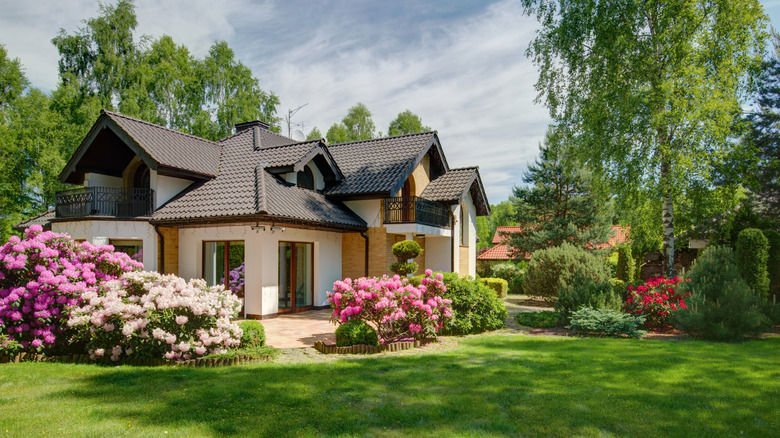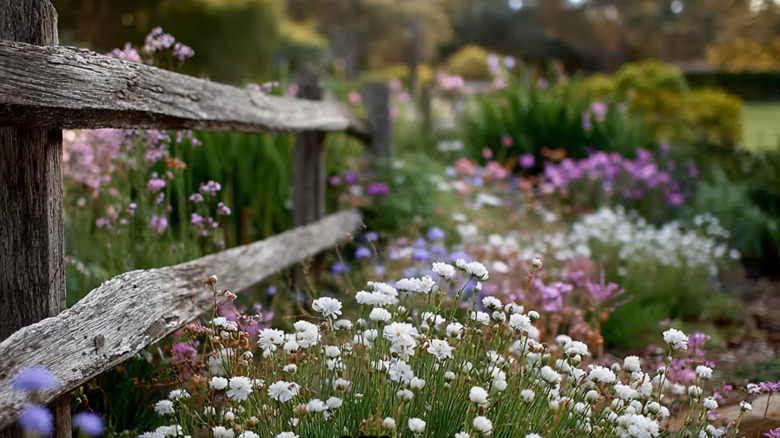Say Goodbye To Picture Perfect Yards: The Low-Maintenance Landscaping Trend Taking Over
You may have heard about wabi sabi, the interior design trend that finds beauty in imperfection, but did you know this trend also applies to the landscape and garden? "Nothing lasts, nothing is finished, and nothing is perfect" is a widely quoted guiding principle of wabi sabi that comes from Richard Powell's 2004 book on the Japanese practice. The "wabi" portion of wabi sabi refers to freshness, simplicity, and a rustic quality, while "sabi" is about honoring the passage of time, the burnish of age, and graceful aging.
A wabi sabi yard might look as though it is untouched by human hands. Wabi sabi embraces asymmetry, so you may not see much symmetry in a wabi sabi garden. Practices of wabi sabi gardeners may mean plants are not neatly pruned and trimmed, flowers don't get much deadheading, fallen leaves are left in place, and intensive end-of-season garden cleanup and sanitation efforts are reduced. Seedheads are left for birds to enjoy on native plants, and you may see the other types of wildlife they host. The wabi sabi lawn probably doesn't look like a lush carpet of turfgrass, but rather a patch of attractive weeds and wildflowers. Neither herbicides nor pesticides have likely been sprayed. You may also find nods to time passing, such as a rusty gate, cracked ceramic piece, or a weathered wooden bench.
Create an easy-care wabi sabi garden that embraces imperfection
Wabi sabi for your yard has commonalities with several similar trends, such as re-wilding, meadowscaping, using lawn alternatives, and ungardening. Homeowners are also being encouraged to swap boring manicured lawns for one of the biggest backyard trends of 2025: forest gardens. All of these styles involve some degree of allowing nature to take over the landscape and embracing nature's imperfections. They tend to be low-maintenance and ecologically sound.
Why would you consider a wabi sabi yard? Reduced maintenance may offer a significant appeal. You will likely increase the biodiversity of your yard with a wabi sabi garden and attract pollinators, especially if you use native plants. You may feel a greater connection and more harmony with nature. Above all, once you learn why perfect lawns are harmful to the ecosystem, you may be interested in trying wabi sabi in your landscape.

